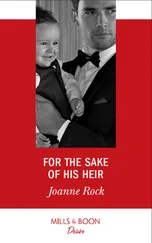Elizabeth George - For the Sake of Elena
Здесь есть возможность читать онлайн «Elizabeth George - For the Sake of Elena» весь текст электронной книги совершенно бесплатно (целиком полную версию без сокращений). В некоторых случаях можно слушать аудио, скачать через торрент в формате fb2 и присутствует краткое содержание. Жанр: Детектив, на английском языке. Описание произведения, (предисловие) а так же отзывы посетителей доступны на портале библиотеки ЛибКат.
- Название:For the Sake of Elena
- Автор:
- Жанр:
- Год:неизвестен
- ISBN:нет данных
- Рейтинг книги:4 / 5. Голосов: 1
-
Избранное:Добавить в избранное
- Отзывы:
-
Ваша оценка:
- 80
- 1
- 2
- 3
- 4
- 5
For the Sake of Elena: краткое содержание, описание и аннотация
Предлагаем к чтению аннотацию, описание, краткое содержание или предисловие (зависит от того, что написал сам автор книги «For the Sake of Elena»). Если вы не нашли необходимую информацию о книге — напишите в комментариях, мы постараемся отыскать её.
For the Sake of Elena — читать онлайн бесплатно полную книгу (весь текст) целиком
Ниже представлен текст книги, разбитый по страницам. Система сохранения места последней прочитанной страницы, позволяет с удобством читать онлайн бесплатно книгу «For the Sake of Elena», без необходимости каждый раз заново искать на чём Вы остановились. Поставьте закладку, и сможете в любой момент перейти на страницу, на которой закончили чтение.
Интервал:
Закладка:
“As a challenge?”
She pulled out another volume. It was open to Nocturne in Blue and Silver , Whistler’s nighttime depiction of the River Thames and Battersea Bridge. “Challenge, growth, boredom, a need for change, a momentary idea that bursts into a long-term commitment. Artists alter their style for all sorts of reasons.”
“And Whistler?”
“I think he saw art where other people saw nothing. But that’s the nature of the artist in the first place, isn’t it?”
To see art where other people see nothing. It was, he realised with some surprise, such a logical conclusion to draw from the facts, one he himself should have been capable of drawing.
Penelope was leafing through a few more pages. A car drew up on the drive outside. A door opened and closed. She raised her head.
“What happened to Whistler?” Lynley asked. “I can’t recall if he won his case against Ruskin.”
Her eyes were on the curtains which were closed. They shifted in the direction of the front door as footsteps approached it, crunching abrasively against the rough shards of gravel on the drive.
She said, “He won and he lost. The jury awarded him a farthing for contemptuous damages but he had to pay the court costs and ended up going bankrupt.”
“And then?”
“He went off to Venice for a bit, painted nothing, and tried to destroy himself with a vicious sort of wild life. Then he went back to London and continued to try to destroy himself there.”
“He didn’t succeed?”
“He didn’t.” She smiled. “Instead he fell in love. With a woman who also fell in love with him. And that tends to obviate past injustices, doesn’t it? One can hardly concentrate on destroying the self when the other becomes so much more important.”
The front door opened. There was a rustle of sound, as of a coat being removed and hung upon the rack. This was followed by a few more footsteps. Then Harry Rodger stopped short at the sitting room door.
He said, “Tommy. Hullo. I’d no idea you were in town,” but he remained where he was, looking ill-at-ease in a rumpled suit and a stained red tie. He clutched a worn athletic bag which was unzipped, with the cuff of a white shirt protruding from it. “You’re looking lively,” he said to his wife. He ventured a few steps into the room, dropped his eyes to the sofa, regarded the books. “Ah. I see.”
“Tommy was asking about Whistler and Ruskin last night.”
“Was he?” Rodger cast a cool look in Lynley’s direction.
“Yes.” She went eagerly on. “You know, Harry, I’d forgotten how interesting the situation between them-”
“Quite.”
Slowly, Penelope raised one hand as if to see to the state of her hair. Tiny lines etched their way from the corners of her mouth. She said to Lynley, “Let me get Helen for you. She was reading to the twins. She can’t have heard you come in.”
When she left them, Rodger went to stand before the sofa. He played the tips of his fi ngers against the baby’s forehead like a restless benediction. “I think we should name you Canvas,” he said, running his index finger along the infant’s smooth cheek. “Mummy would like that, wouldn’t she?” He looked at Lynley, his mouth curving with a sardonic smile.
Lynley said, “People generally have interests outside the sphere of their families, Harry.”
“Secondary interests. With their families coming fi rst.”
“Life’s not that convenient. People don’t always fit into the most accommodating mould.”
“Pen’s a wife.” Rodger’s voice was smooth, but it had a rock’s smoothness, hard and determined. “She’s a mother as well. She made that decision more than four years ago. She chose to be the care-giver, the backbone of the family, not someone who leaves her baby in a pile of laundry while she leafs through her art books and dwells on the past.”
It was a condemnation that Lynley found particularly unfair, considering the circumstances of Penelope’s renewed interest in art. He said, “Actually, I set her off on this yesterday.”
“Fine. I understand. But it’s over for her, Tommy. That part of her life.”
“On whose determination?”
“I know what you’re thinking. You’re wrong. We both decided what was more important. But she won’t accept it now. She doesn’t want to adjust.”
“Why does she have to? The decision’s not written in concrete, is it? Why can’t she have both? Her career. Her family.”
“There aren’t any winners in a situation like that. Everyone suffers.”
“Instead of just Pen?”
Rodger’s face became chiselled in reaction to the affront. His voice, however, remained perfectly reasonable. “I’ve seen this sort of thing among my colleagues, Tommy, even if you haven’t. Wives go their own way and the family dissolves. And even if that weren’t the case-even if Pen could juggle the roles of wife, mother, homemaker, and art conservationist without driving us all mad, which she can’t, by the way, which is why she quit her job at the Fitzwilliam when the twins were two-she has everything she needs right here. A husband, a fair income, a decent home, three healthy children.”
“That’s not always enough.”
Rodger laughed sharply. “You sound just like her. She’s lost her self , she says. She’s just an extension of everyone else. What absolute rubbish. What she’s lost is things . What her parents provided her. What we used to have when both of us worked. Things.” He dropped his athletic bag next to the sofa, wearily rubbed the back of his neck. “I’ve spoken to her doctor. Give her time, he says. It’s that post-partum business. She’ll be back to herself in a few more weeks. Well, as far as I’m concerned, it had better happen soon. I’m just about at the end of my patience with her.” He nodded at the baby. “Watch her for me, will you? I’ve got to get something to eat.”
That said, he left the room, disappearing through the door that led into the kitchen. The baby gurgled once again and clutched at the air. She made a sound like “uh puh” and grinned with happy, toothless pleasure at the ceiling.
Lynley sat down next to her laundry nest and took hold of one of her hands. It wasn’t much larger than the pad of his thumb. Her nails teased his skin-odd to think that he’d never once considered the fact that babies have nails-and he felt a rush of tenderness towards her. Unprepared to feel anything more than bemusement when left alone with her, he pulled over one of Penelope’s art books. Although the words were out of focus because he didn’t want to bother-couldn’t really bother-with his spectacles, he plunged himself wholeheartedly into distraction with an account of James McNeill Whistler’s earliest days in Paris and the typically stuffy, academic revelation of his relationship with his fi rst mistress, who was both introduced and dismissed from Whistler’s life within the confines of a single gerund phrase: “He began by assuming a life style he deemed appropriate to a bohemian and by going so far as to attract a young milliner-nicknamed La Tigresse with the joyful hyperbolic propensity of the period-to live with and pose for him for a period of time.” Lynley read on, but there was nothing more of the milliner. To the academic who had written the volume, she merited one sentence in an account of Whistler’s life, no matter what she may have been to him, no matter the way in which she may have infl uenced or inspired his work.
Lynley reflected on the veiled implication behind that simple group of words. Nonentity , they declared, someone he painted and took to his bed. She was consigned to history as Whistler’s mistress. If she’d ever had a self, it was long forgotten.
Читать дальшеИнтервал:
Закладка:
Похожие книги на «For the Sake of Elena»
Представляем Вашему вниманию похожие книги на «For the Sake of Elena» списком для выбора. Мы отобрали схожую по названию и смыслу литературу в надежде предоставить читателям больше вариантов отыскать новые, интересные, ещё непрочитанные произведения.
Обсуждение, отзывы о книге «For the Sake of Elena» и просто собственные мнения читателей. Оставьте ваши комментарии, напишите, что Вы думаете о произведении, его смысле или главных героях. Укажите что конкретно понравилось, а что нет, и почему Вы так считаете.












